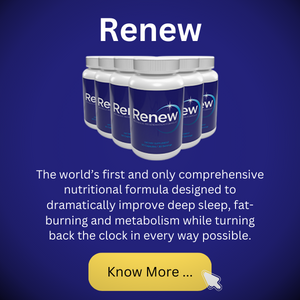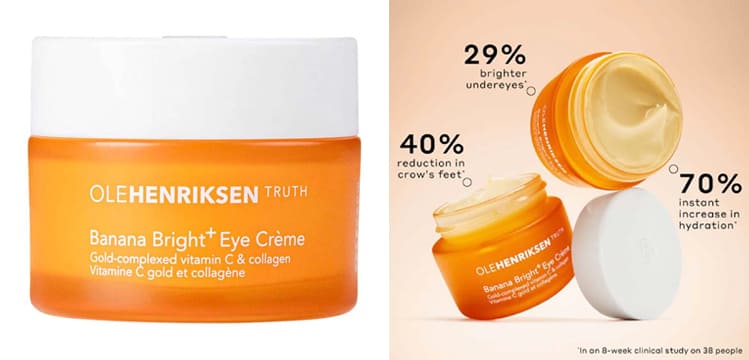Woman left with ‘dark, yellow, foul-smelling discharge’ after taking hair growth supplement – as docs issue warning
A WOMAN was left with dark and smelly discharge coming from her vagina after taking hair supplements.
The 64-year-old began using Spring Valley Hair Skin and Nail tablets in February after hearing about the positive effects they had on her cousin.
According to the supplement’s ingredients list, it contains biotin, vitamins A, C, E, niacin, and pantothenic acid, all known to help with hair growth and scalp health.
However, less than a month into the course, she developed a “dark, yellow, foul-smelling discharge” and a burning sensation when she peed, according to US doctors describing the case.
“This highlights the possibility of links between common, readily available products that patients use every day without the realisation of unintended side effects,” they said in the Journal of Medical Case Reports.
“The patient would not normally consider that hair, skin, and nails treatment could be affecting her genitourinary (reproductive and urinary) system.”
The woman was diagnosed with candida, a yeast infection more commonly known as thrush.
Thrush is a common fungal infection caused by an overgrowth of Candida albicans, a type of yeast that naturally lives in the body.
In women, it most often affects the vagina, leading to symptoms like itching, burning, and unusual discharge. But it can also affect the mouth.
“This is the first reported case of a hair, skin, and nails supplement associated with vaginal candidiasis,” the authors wrote.
Other side effects linked to similar supplements have included acne breakouts, skin rashes and nausea.
A few days after stopping the supplement in mid-April, her symptoms gradually improved and eventually disappeared.
By May, the discharge was gone, and there were no further issues during a follow-up visit in June.
Doctors at Purdue University College of Pharmacy in West Lafayette investigated all other possible causes for the infection.
They reviewed her medications, including aspirin, vitamin D, iron supplements, blood pressure and cholesterol tablets, sleep aids, and a topical anti-inflammatory gel. None were known to cause thrush.
They also ruled out other common causes like bacterial infections, hormone imbalances, and risk factors such as diabetes, which could have led to similar symptoms.
Although none of the active ingredients were known to cause thrush, doctors said preservatives or fillers in the supplement may have disrupted her vaginal pH.
“Even inactive ingredients can sometimes shift the balance of the microbiome,” they wrote.
The Sun has contacted Spring Valley for comment.
Supplement regulations
Spring Valley Hair Skin and Nail tablets are primarily available in the US but can also be purchased online in the UK.
In the US, supplements are regulated as food products under the Dietary Supplement Health and Education Act of 1994.
They don’t require US Food and Drug Administration (FDA) approval before being sold, and manufacturers aren’t obligated to prove they’re safe or effective.
“Because supplements are classified as food products, they don’t undergo the same rigorous testing as medications, leaving potential side effects to go unnoticed,” the doctors explained.
In the UK, supplements are regulated under the Food Supplements (England) Regulations 2003, which align with EU and UK food laws.
They must comply with general food safety legislation and cannot make misleading health claims.
But, unlike medicines, supplements are not as strictly regulated and do not undergo the same rigorous testing.
The nasty ingredients hiding in supplements
Supplements can help us reach vitamin and mineral recommendations.
But Dr Carol Granger, a registered nutrition practitioner with a degree in biochemistry and a masters in microbiology, warns of many additions to supplements, medications and foods that could cause side effects, and suggests doing your research before buying commercial pills.
She tells Sun Health: “Ingredients like talc, E numbers, and gelatin are all used as bulking agents or as colourings and they can have serious long-term health impacts like heartburn, dizziness, fainting and severe allergic reactions.”
Here are the worst culprits:
Magnesium stearate
Unlike the name suggests, this ingredient contains no magnesium (which may help with sleep, anxiety and bone health).
Dr Granger says: “This is used as a lubricant – it prevents ingredients sticking together and means the machines that make the tablets don’t block.”
But she warns that “high amounts can cause a laxative effect and it can cause inflammation too, especially in those who are sensitive to allergies”.
It’s unlikely the small amount found in supplements is enough to do harm, but it may be worth reconsidering if you have been taking it for a long time.
Ascorbyl Palmitate
Ascorbyl palmitate is a form of vitamin C made by combining ascorbic and palmitic acids.
It’s considered safe in the amounts that are used when added to skincare.
Dr Granger says: “This is used as an antioxidant food additive and preservative meaning things with it in can have a longer use by date.”
But she claims “excess amounts can cause nausea, diarrhoea, and vomiting”.
Aspartame
You’ll may be familiar with aspartame, which is a sugar-alternative often used in things like soft drinks, sweetened diet products or other ‘low/no sugar’ foods.
Dr Granger says: “This is a sweetener a lot of people have heard of.
“It’s a flavour enhancer but because it’s an artificial sweetener, it has been linked to weight gain.”
Studies have found both that sweeteners like aspartame help people lose weight, but also gain weight by potentially increasing appetite.
Several studies have linked high intakes to more serious health problems such as cardiovascular disease, cancer, and dementia but there has been much debate about the results.
But Dr Granger claims: “It can affect metabolism so if you see it on any ingredient list, my advice would be to give it a wide berth.”
Carrageenans
Carrageenan is an ingredient that has long had concern surrounding it.
Products with it may be labelled as ‘natural’ because it is derived from seaweed, therefore it is also found in some plant-based/vegan foods.
But Dr Granger says: “The processing used to make some types of carrageenan makes it into something you definitely don’t want to consume.
“They’re widely used as gelling agent and thickener. They can be used to prevent powder clumping so may be in powder supplements you add to smoothies.
“But some cause inflammation, are really bad for digestive health and have been linked to ulcers too.
“Some can also destabilise blood sugar and cause problems with blood sugar balance.”
Calcium Phosphate
Calcium phosphate is a mineral (calcium and phosphate) which are essential for bone, muscle, blood and nerve health.
Some may benefit from additional calcium, such as menopausal women with weakening bones.
But calcium phosphate is also used as an additive to products, from supplements to toothpaste and fertilizers.
Dr Granger says: “This is used to bulk out and buffer ingredients like vitamin C.
“Side effects can include kidney problems, loss of appetite and weakness.”
Source link
Share this article:












